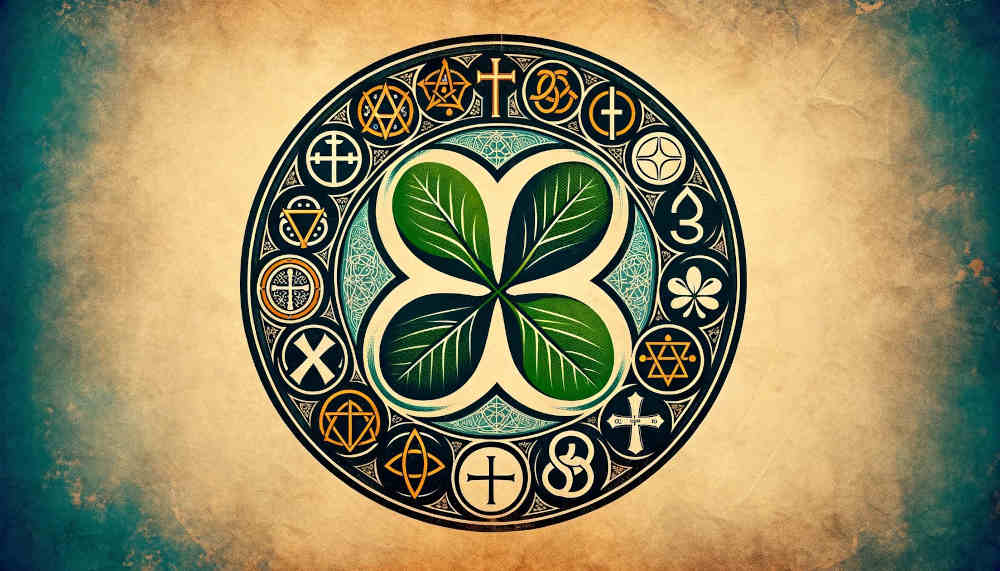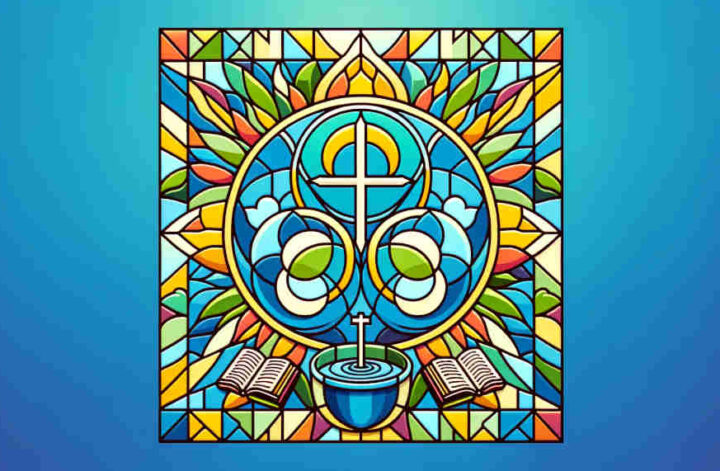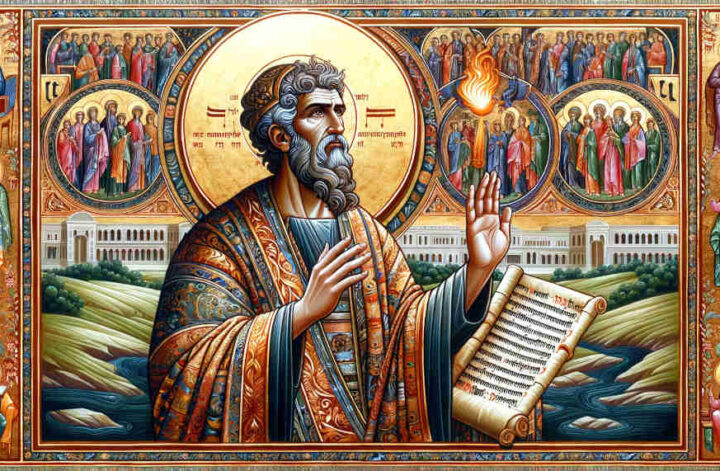In the tapestry of Christian beliefs, the concept of the Trinity stands out as both profound and enigmatic. This foundational doctrine, affirming one God in three Persons—Father, Son, and Holy Spirit—has been a central tenet of Christian orthodoxy since the early church. For those exploring the depths of Baptist theology, a clear understanding of the Trinity is essential. This article aims to elucidate the Baptist perspective on this pivotal doctrine, providing a thorough exploration for our readers, regardless of where they are from.
The question, “Do Baptists believe in the Trinity?” opens the door to a rich vein of theological discourse. As we delve into the historical, doctrinal, and practical dimensions of Baptist belief, we shall uncover the multifaceted ways in which the Trinity shapes and informs Baptist faith and practice. Our journey through this exploration will offer clarity and insight, underscoring the profound relevance of the Trinity in the Baptist tradition.
It is with a spirit of scholarly rigor and pastoral sensitivity that we approach this topic, seeking to engage both the mind and the heart. Whether you are a seeker, scholar, or believer, this article intends to serve as the definitive guide on Baptist belief in the Trinity, striving to achieve the utmost standard of excellence in both content and accessibility.
Historical Roots of Baptist Belief
The Baptist denomination, with its emphasis on believers’ baptism and congregational governance, has a storied history that dates back to the early 17th century. The inception of Baptist belief is often traced to a fervent desire for a return to New Testament practices and doctrines, among which the understanding of the Trinity holds a place of prominence.
Early Baptist confessions, such as the 1644 London Baptist Confession of Faith, articulate a commitment to the Trinity that aligns closely with the Nicene Creed, a touchstone of Trinitarian orthodoxy since the fourth century. These documents highlight the enduring influence of the early ecumenical councils on Baptist theology.
“There is but one and the same God, the substance of which is indivisible; distinguished by three coequal, coeternal Persons, according to the good pleasure of God, which God we worship and serve.” – Excerpt from the 1646 First London Baptist Confession
The Reformation played a pivotal role in shaping Baptist views on the Trinity. Reformers like Martin Luther and John Calvin reaffirmed the doctrine of the Trinity, influencing early Baptists who sought to continue the work of reforming the church according to Scripture. This historical context is crucial for understanding the contemporary Baptist belief in the triune God.
To further explore the Baptist tradition’s historical development and its stance on the Trinity, esteemed resources such as The Baptist Story: From English Sect to Global Movement by Anthony L. Chute, Nathan A. Finn, and Michael A. G. Haykin provide in-depth analysis and are highly recommended for comprehensive study.
Baptist Theological Foundations
The bedrock of Baptist belief is not tradition or ecclesiastical hierarchies, but the authority of Scripture. The Trinity is a concept derived not from human invention but from the diligent study of the Bible. Baptists affirm that the Scriptures bear witness to the nature of God as a Trinity, evident in both the Old and New Testaments.
Central to Baptist confessional statements is the affirmation of one God in three persons. For instance, the Baptist Faith and Message states: “The eternal triune God reveals Himself to us as Father, Son, and Holy Spirit, with distinct personal attributes, but without division of nature, essence, or being.” This careful articulation reflects Baptists’ commitment to doctrinal clarity and biblical fidelity.
In understanding the Trinity, Baptists often refer to the classic formulation: God is one in essence and three in person. The distinction and relationship between the Father, Son, and Holy Spirit are expounded upon in many Baptist theological works, such as Systematic Theology by Wayne Grudem, a text esteemed for its thorough treatment of Christian doctrine from a broadly evangelical Baptist perspective.
The theological significance of the Trinity in Baptist thought cannot be overstated. It informs our understanding of God’s character, God’s work in salvation history, and the believer’s experience of God. The Trinity is not an abstract doctrine but a living reality that shapes the life of faith. As the renowned Baptist theologian Millard Erickson puts it, “The doctrine of the Trinity is crucial for Christianity. It is foundational to the Christian conception of God; it is essential to a proper understanding of the Christian gospel.”
For those seeking to delve deeper into the Baptist perspective on the Trinity, The Gospel Coalition offers a wealth of articles and sermons that discuss the doctrine’s implications for faith and practice. Additionally, the works of Baptist historians like Timothy George provide invaluable insights into the doctrinal convictions that have shaped Baptist identity over the centuries.
The Trinity in Baptist Worship and Practice
The doctrine of the Trinity is not only a theological statement but also a profound influence on Baptist worship and practice. It permeates the liturgy, hymnody, and even the architecture of Baptist churches, reflecting a community’s devotion to the triune God.
In Baptist worship services, one might hear the doxology sung with fervor: “Praise God, from whom all blessings flow; Praise Him, all creatures here below; Praise Him above, ye heavenly host; Praise Father, Son, and Holy Ghost.” Such Trinitarian praise is a staple of Baptist life, encapsulating the faith’s commitment to the triune nature of God.
The act of Baptism itself, the namesake of the Baptist denomination, is deeply Trinitarian. Baptists baptize believers “in the name of the Father, and of the Son, and of the Holy Spirit”, following the Great Commission of Matthew 28:19. This baptismal formula is a public profession of faith and an acknowledgment of the believer’s relationship with the Triune God.
Beyond the rituals, the Trinity also plays a crucial role in the spiritual life of the believer. The Father’s love, the grace of the Lord Jesus Christ, and the fellowship of the Holy Spirit (2 Corinthians 13:14) are frequently invoked to encourage and bless congregants. For Baptists, these are not mere words but expressions of a lived reality that nurtures their faith.
For a deeper exploration of the Trinity’s role in worship and devotion, readers are encouraged to engage with resources like LifeWay Christian Resources, which provide a variety of materials on Baptist worship practices. Furthermore, the insights of Baptist theologian J.I. Packer, particularly in his work “Knowing God,” offer profound reflections on experiencing the Trinity in the Christian life.
Diverse Perspectives Within Baptist Denominations
The Baptist denomination, though united by core doctrines such as the Trinity and believers’ baptism, is marked by a rich diversity of thought and practice. This variety is seen across different Baptist denominations, each with their own unique emphasis on certain theological points, including their understanding and expression of the Trinity.
Within the spectrum of Baptist denominations, there is a range from the conservative Southern Baptist Convention to the more progressive American Baptist Churches USA. Despite these differences, adherence to the Trinitarian doctrine remains a common thread. However, the interpretation and emphasis on the Trinity can vary, influencing theology, worship, and the daily lives of believers.
Regional and cultural variations also play a significant role in shaping the expression of Trinitarian belief. For instance, Baptists in the American South may have different liturgical expressions compared to their counterparts in other parts of the world, reflecting a broader tapestry of global Christianity while maintaining essential doctrinal unity.
To understand the breadth of Baptist perspectives on the Trinity, one might look to the North American Mission Board, which provides insights into the various Baptist denominational stances. Additionally, exploring the works of theologians like Roger E. Olson can offer a window into the spectrum of Baptist theological thought and the place of the Trinity within it.
It is important for those within and outside the Baptist faith to recognize the diversity inherent in a denomination that spans across cultures and continents. This diversity, however, does not detract from the cohesive belief in one God in three persons, a belief that continues to unite Baptists around the world.
Baptist Theology Compared to Other Christian Traditions

The doctrine of the Trinity is a cornerstone of Christian theology that Baptists share with many other Christian traditions. While there is a fundamental agreement on the nature of God as being one essence and three persons, nuances in theological emphasis and doctrinal expression can be observed when comparing Baptist theology with Catholic, Orthodox, and other Protestant interpretations.
The Roman Catholic Church and Eastern Orthodox Church have deeply rooted traditions and theological formulations of the Trinity that have been influential throughout Christian history. Baptists, while more recent in historical emergence, engage in a dialogue with these ancient expressions of Trinitarian doctrine, respecting their contributions to Christian theology while also affirming the distinctiveness of their own doctrinal understandings.
Protestant traditions, born from the Reformation, share a common heritage with Baptists, particularly in their approach to scriptural authority. However, even within Protestantism, there are variations in how the Trinity is understood and lived out. For instance, Lutheran and Anglican traditions may incorporate more liturgical and sacramental expressions of Trinitarian faith, while Baptists often emphasize personal faith and congregational autonomy.
The Baptist contribution to ecumenical dialogues on the Trinity is significant, offering a perspective that is both scripturally grounded and open to the insights of the broader Christian community. Seminal Baptist voices in these discussions, such as those of theologian E.Y. Mullins, have offered a robust articulation of Baptist Trinitarian thought that values both tradition and innovation.
For those interested in the comparative study of Trinitarian theology, the InterVarsity Press provides a range of scholarly works that bridge the gap between various Christian traditions. Additionally, the Christianity Today website offers articles that explore the Trinity from multiple denominational perspectives, encouraging a well-rounded understanding of this central doctrine.
| Tradition | Understanding of the Trinity | Key Emphases | Notable Theologians |
|---|---|---|---|
| Baptist | One God in three persons, with a focus on scriptural authority | Personal faith, congregational autonomy | E.Y. Mullins |
| Catholic | One essence in three co-equal persons, guided by tradition and scripture | Sacramental life, magisterial authority | Thomas Aquinas |
| Orthodox | One God in three persons, with emphasis on theosis (deification) | Liturgical worship, mystical theology | Gregory Palamas |
| Protestant (General) | Variations in understanding, generally aligned with foundational Christian creeds | Justification by faith, authority of scripture | Martin Luther, John Calvin |
The Trinity and Salvation in Baptist Belief
At the heart of Baptist soteriology—the doctrine of salvation—lies a robust Trinitarian framework. The roles of the Father, Son, and Holy Spirit are distinct yet harmoniously integrated in the work of saving grace. This section examines how each Person of the Trinity engages with the believer’s journey of salvation.
The Father is often seen as the architect of salvation, initiating love and grace towards humanity. The Son, Jesus Christ, is the agent through whom salvation is accomplished, particularly through His atoning work on the cross. The Holy Spirit is the applier of salvation, working within the hearts of believers to bring about regeneration and sanctification.
The following table outlines the Trinitarian roles in Baptist soteriology, providing a clear and structured look at this complex interplay:
| Person of the Trinity | Role in Salvation | Scriptural References |
|---|---|---|
| Father | Initiates and plans redemption | 1 Peter 1:2, Ephesians 1:3-6 |
| Son (Jesus Christ) | Accomplishes redemption through His life, death, and resurrection | John 3:16, Romans 5:6-11 |
| Holy Spirit | Applies redemption, convicts of sin, and sanctifies the believer | Titus 3:5, 2 Thessalonians 2:13 |
This Trinitarian cooperation in salvation illustrates the depth and beauty of God’s work in the world and the life of the believer. For a more detailed study on this subject, one may turn to classic Baptist works like The Christian Doctrine of Salvation by George W. Truett or the modern contributions found on Desiring God, which offer rich theological insights into the Baptist understanding of salvation.
Contemporary Challenges and Questions
In modern times, Baptists, like many other denominations, face challenges in articulating and understanding the doctrine of the Trinity. Misunderstandings and theological debates can arise, requiring clarity and thoughtful engagement. This section addresses some of these contemporary challenges and common questions with concise, informative responses that may be featured in search engine snippets or Q&A sections.
Frequently Asked Questions About the Trinity in Baptist Theology
- Is the concept of the Trinity explicitly stated in the Bible?
- While the word “Trinity” is not found in Scripture, the concept is derived from a holistic reading of the Bible, which presents God as one in essence but three in person—Father, Son, and Holy Spirit.
- How do Baptists respond to the claim that the Trinity is a contradiction?
- Baptists affirm that while the Trinity is a mystery beyond full human comprehension, it is not a contradiction. The doctrine holds that God is one in essence, not personhood, allowing for three distinct persons within the Godhead.
- Are there any Baptist denominations that do not believe in the Trinity?
- Denominations that identify as Baptist generally uphold the Trinity as a core doctrine. However, there are fringe groups or individuals who may deviate from this traditional Baptist belief.
Engaging with these questions is part of a larger conversation within the Baptist community and the wider Christian world. It is a dialogue that continues to shape our understanding and expression of the faith. For those seeking further discussion on the challenges surrounding the Trinity, The Gospel Coalition and Christianity Today offer platforms where such theological issues are regularly explored and debated.
Educational and Pastoral Approaches to the Trinity
The exploration of the Trinity within Baptist theology does not end with academic study; it extends into the life of the church and the believer. Education and pastoral care play crucial roles in helping individuals understand and experience the profound mystery of the Triune God.
Baptist pastors and educators are tasked with the challenge of making the doctrine of the Trinity accessible and relevant to the faithful. Through preaching, teaching, and discipleship, they strive to convey the beauty and depth of a Triune relationship with God.
Resources for deepening one’s understanding of the Trinity include:
- LifeWay Christian Resources for curriculum and study materials.
- Desiring God for articles, sermons, and books focused on the Trinity.
- The Gospel Coalition for theological essays and resources on the Trinity.
The journey of faith is enriched by a deeper understanding of the Trinity, inviting believers into a more intimate and dynamic relationship with God. As Baptists continue to explore, teach, and live out this central doctrine, they contribute to the vibrant tapestry of Christian faith and witness.
Final Reflections on the Trinity in Baptist Faith
Our exploration of the Trinity within Baptist theology reveals a rich landscape of belief, practice, and devotion. This foundational doctrine, while profound and sometimes challenging, is central to the Baptist understanding of God and the Christian life.
As we conclude, let us remember that the journey into the mystery of the Trinity is a journey into the heart of God. It is a path that leads to deeper faith, fuller worship, and more fervent discipleship. May this exploration inspire and encourage all who seek to know and love the Triune God more deeply.
For those eager to continue their study, the resources mentioned throughout this article serve as gateways to further discovery and growth. In the embrace of the Father, the grace of the Son, and the fellowship of the Holy Spirit, may we find our deepest joy and our highest calling.
Glossary of Terms
| Term | Definition |
|---|---|
| Trinity | The Christian doctrine that God exists as three persons in one essence: Father, Son, and Holy Spirit. |
| Soteriology | The study of religious doctrines of salvation. |
| Ecumenical | Pertaining to efforts or movements aimed at unity among different Christian denominations. |
| Theosis | In Eastern Orthodox theology, the process of becoming more like God or being united with God. |
Further Reading
- “The Forgotten Trinity” by James R. White – A deep dive into the biblical foundation and importance of the Trinity in Christian belief.
- “Delighting in the Trinity” by Michael Reeves – An introduction to the joy of the Trinity and its relevance to Christian life.
- “The Deep Things of God: How the Trinity Changes Everything” by Fred Sanders – Explores how the Trinity is fundamental to all aspects of the Christian faith.
- The Gospel Coalition’s resource page on the Trinity – Offers a variety of articles, lectures, and book recommendations on the doctrine of the Trinity.


